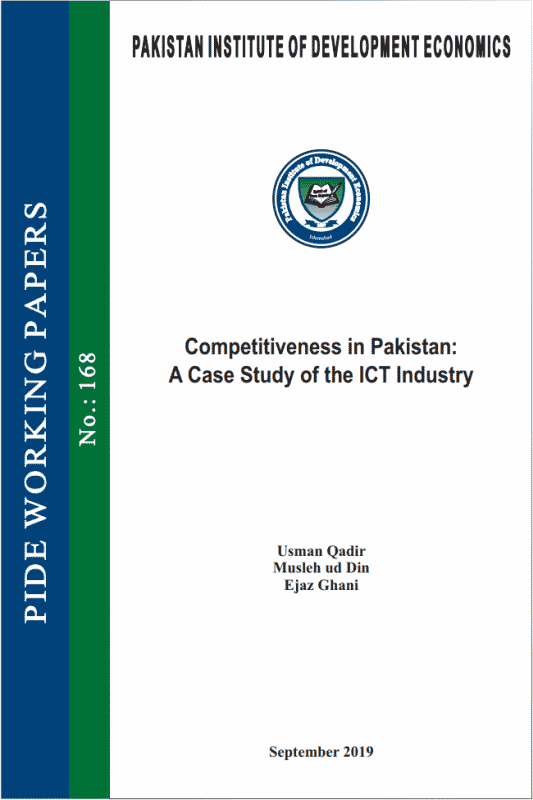Competitiveness in Pakistan: A Case Study of the ICT Industry
In developing countries, vegetable markets are inefficient in terms of information exchanges between producers and consumers on food safety attributes. This study attempts to investigate the determinants of pesticide residues and estimate information efficiency of vegetable market, by using data collected from a representative sample of 360 farmers in Pakistani Punjab. Chromatography technique is employed to quantify pesticide residues in four common vegetables. Majority of the vegetable samples surpasses the maximum residues limits; hence, they are lemons (bad products). Results of pesticide residue model show that magnitudes of pesticide residues in vegetables vary with pesticide quantity and spray interval at the farm level. Results of information efficiency model reveal that vegetable prices are negatively but insignificantly correlated with pesticides residues, implying that vegetable market is a lemon market in Pakistan. Proper implementation of food safety standards and product labelling may help to provide safe vegetables to consumers.




